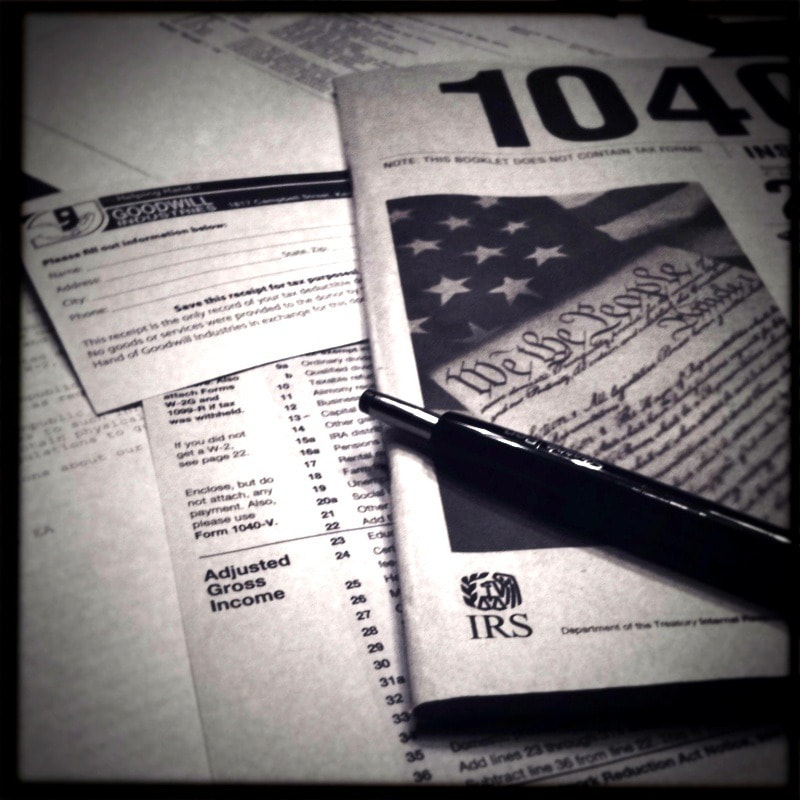|
A shell company is structure as a legally business on paper to be seen legitimate even though there is no workers or job sites were business is conducted. A shell company usually holds banking accounts or assets like investments and tangible assets. Most of the time a shell company is used to hold funds for anonymous entity. The only reason a person would want to start a shell company is for startup that are raising funds before operation are implemented. Shell Company are sometimes used to avoid taxes or hid assets from it true owners from the public, which, is illegal to do in some cases. It can also be used for money laundry for illegal schemes.
0 Comments
Goodwill account is found on the balance sheet of a company because goodwill is considered an intangible asset. This means that money was spent to build a company reputation or its brand popularity. This happen when a company buys another company that is higher than the fair market value. The process usually happen when there is a merger and acquisitions between two companies.
 A W-9 form was created from the Internal Revenue Service to make it easier for them to keep track of income that a business is making for taxes. The W-9 form is given to the person or organization that is paying you for your services. The W-9 form includes:
The information from the W-9 form is enter into the client accounting system to issue you a payment for your services. The W-9 Form also helps the client prepare 1099 form for taxes. They are issue if your services are more than $600.00 for the fiscal year if you are independent contractor. If they are less than $600.00 for the year, then you will not need to submit a 1099 to the IRS. Also 1099 form are excluded from corporation since they have different tax code.
A limited liability company (LLC) is a corporate structure whereby the members of the company cannot be held personally liable for the company's debts or liabilities. Limited liability companies are essentially hybrid entities that combine the characteristics of a corporation and a partnership or sole proprietorship.
Pros:
Cons:
Money Laundering is the concealment of the origins of illegally obtained money, typically by means of transfers involving foreign banks or legitimate businesses.
The Three stages of Money Laundry:
Money Laundering is illegal because it is tied to a crime. The process of money laundering gives freedom to launderers to convert their money earned form illegal sources to legal one which may reach to criminals, terrorists and other organizations and can be used to unstable the world. 1. Claiming Rental Losses:
Passive loss rules prevent the deduction of rental real estate losses, but there are two important exceptions:
2. Taking an Alimony Deduction: Alimony paid by cash or check is deductible by the payer and taxable to the recipient, provided certain requirements are met. payments must be made under a divorce or separate maintenance decree or written separation agreement. The instrument can’t say the payment isn’t alimony. 3. Writing off a Loss for a Hobby: You must report any income you earn from a hobby, and you can deduct expenses up to the level of that income. But the law bans writing off losses from a hobby. To be eligible to deduct a loss, you must be running the activity in a business-like manner and have a reasonable expectation of making a profit. 4. Deducting Business Meals, Travel and Entertainment: A large write-off will set off alarm bells, especially if the amount seems too high for the business or profession. Agents are on the lookout for personal meals or claims that don't satisfy the strict substantiation rules. To qualify for meal or entertainment deductions, you must keep detailed records that document for each expense the amount, the place, the people attending, the business purpose and the nature of the discussion or meeting. 5. Failing to Report a Foreign Bank Account IRS scrutinizing information from amnesty seekers and is targeting the banks that they used to get names of even more U.S. owners of foreign accounts. Failure to report a foreign bank account can lead to severe penalties. Make sure that if you have any such accounts, you properly report them. This means electronically filing Fin CEN Form 114 to report foreign accounts that total more than $10,000 at any time during the previous year. And those with a lot more financial assets abroad may also have to attach IRS Form 8938 to their timely filed tax returns 1. Making a Lot of Money:
IRS statistics for 2016 show that people with an income of $200,000 or higher had an audit rate of 1.70%, or one out of every 59 returns. The audit rate drops significantly for filers making less than $200,000: Only 0.65% (one out of 154) of such returns were audited during 2016, and the vast majority of these exams were conducted by mail. understand that the more income shown on your return, the more likely it is that you'll be hearing from the IRS. 2. Failing to Report All Taxable Income: The IRS gets copies of all of the 1099s and W-2s you receive, so be sure you report all required income on your return. IRS computers are pretty good at matching the numbers on the forms with the income shown on your return. A mismatch sends up a red flag and causes the IRS computers to spit out a bill. If you receive a 1099 showing income that isn't yours or listing incorrect income, get the issuer to file a correct form with the IRS. 3.Taking Higher-than-Average Deductions: If the deductions on your return are disproportionately large compared with your income, the IRS may pull your return for review. But if you have the proper documentation for your deduction, don't be afraid to claim it. There's no reason to ever pay the IRS more tax than you actually owe. 4. Running a Small Business: Schedule C is a treasure trove of tax deductions for self-employed people. But it's also a gold mine for IRS agents, who know from experience that self-employed people sometimes claim excessive deductions and don’t report all of their income. The IRS looks at both higher-grossing sole proprietorship and smaller ones. Other small businesses also face extra audit heat, as the IRS shifts its focus away from auditing regular corporations. The agency thinks it can get more bang for its audit buck by examining S corporations, partnerships and limited liability companies. So it’s spending more resources on training examiners about issues commonly encountered with pass-through firms. 5.Taking Large Charitable Deductions: If your charitable deductions are disproportionately large compared with your income, it raises a red flag. That's because the IRS knows what the average charitable donation is for folks at your income level. Also, if you don't get an appraisal for donations of valuable property, or if you fail to file Form 8283 for noncash donations over $500, you become an even bigger audit target. And if you've donated a conservation or façade easement to a charity, chances are good that you'll hear from the IRS. Be sure to keep all of your supporting documents, including receipts for cash and property contributions made during the year. |
Blog Info:Blogs are about learning basic accounting, accounting formula, tips and advice, and investment concepts and terms. Categories
All
Archives
September 2021
|
||||||||||||||||||||







 RSS Feed
RSS Feed